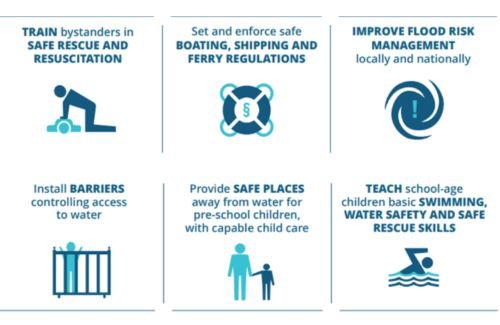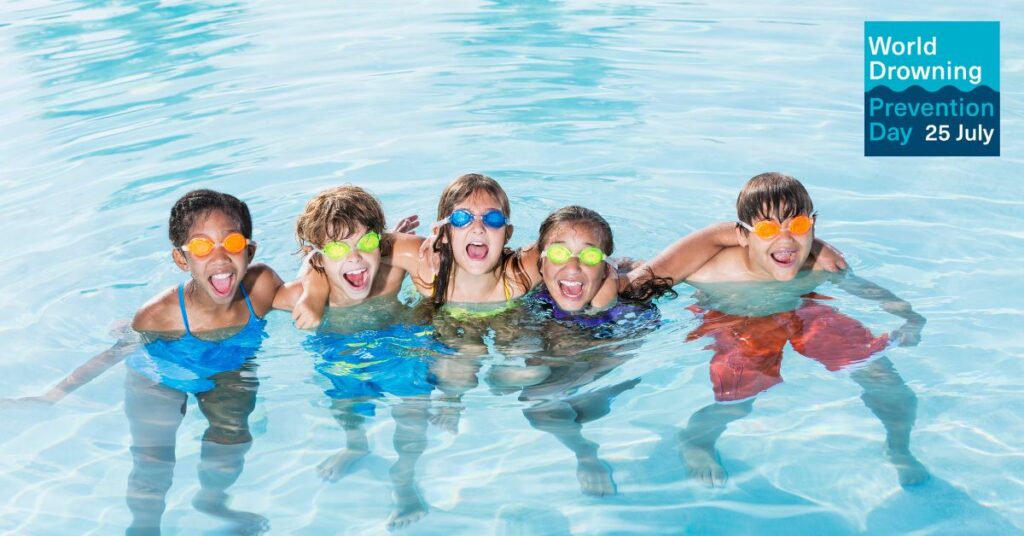The tagline of World Drowning Prevention Day by WHO (World Health Organisation) is ‘Anyone can drown, no one should‘.
World Drowning Prevention Day, observed annually on 25th July, is a crucial event dedicated to shedding light on the growing number of drowning incidents occurring worldwide. This day serves as a reminder that drowning is not only a local issue but a global crisis that requires urgent action. As a responsible global citizen, it is essential to comprehend the gravity of this problem and strive to create a safer environment for everyone, especially children and vulnerable communities.
Alarming Statistics on Drowning Incidents:
Drowning remains one of the leading causes of unintentional deaths worldwide, and the numbers are staggering. According to the World Health Organization (WHO), approximately 360,000 people lose their lives to drowning every year. This means, on average, more than 900 individuals succumb to drowning daily, which is deeply distressing.
The risk of drowning disproportionately affects children, making it one of the most significant preventable causes of mortality among children aged 1 to 14 years old. In many low- and middle-income countries, the rate of child drowning is especially high due to a lack of access to proper education on water safety and swimming facilities.

Understanding the Causes of Drowning:
Drowning incidents can occur in various settings, from natural bodies of water to swimming pools, bathtubs, and even buckets. Understanding the root causes is crucial in devising effective prevention strategies.
Lack of Swimming Skills: A lack of basic swimming skills is a major contributor to drowning incidents. Teaching children and adults how to swim is a fundamental step in reducing the number of drownings.
Inadequate Supervision: Insufficient adult supervision, especially in the case of young children, is another significant factor leading to drowning accidents. Vigilance around water bodies is imperative to ensure safety.
Also Read: Chandrayaan 3 Embarks on a Lunar Odyssey, Unraveling Celestial Enigmas
Alcohol Consumption: Consuming alcohol while engaging in aquatic activities can impair judgment and coordination, greatly increasing the risk of drowning.
Rip Currents and Natural Hazards: At beaches and other natural water bodies, rip currents and sudden weather changes can catch swimmers off guard, making them vulnerable to drowning.
The Global Initiative: Preventing Drowning Together
While the statistics paint a grim picture, there is hope. World Drowning Day has brought together organizations, governments, and individuals worldwide to address this crisis through targeted prevention efforts.
Promoting Water Safety Education: Implementing comprehensive water safety education programs can equip individuals with the knowledge and skills to protect themselves and others in and around water.
Building Safe Infrastructure: Ensuring that public pools, beaches, and recreational areas have appropriate safety measures, lifeguards, and warning signs can significantly reduce the risk of drowning.
Advocacy for Policy Change: Encouraging governments to develop and enforce stricter laws related to water safety can create a safer environment for everyone.
Supporting Community Outreach Programs: Collaborating with local communities to spread awareness about drowning prevention can make a substantial impact, particularly in areas with limited resources.
World Drowning Prevention Day is not just another awareness day; it is a call to action against a global crisis that affects countless lives every year. By understanding the root causes of drowning incidents and supporting initiatives aimed at promoting water safety and education, we can collectively work towards reducing the number of drowning incidents and safeguarding the lives of our loved ones.
Let us unite on this World Drowning Prevention Day and take a step closer to a world where water-related tragedies become a thing of the past. Together, we can make a difference and save lives.



